Vocabulary Building Writing Worksheets for Ages 4-6
9 filtered results
-
From - To
Unlock the joy of learning with our "Vocabulary Building Writing Worksheets for Ages 4-6" from Kids Academy! Tailored specifically for young minds, these interactive worksheets make vocabulary building an exciting journey. Through fun activities, children enhance their language skills and expand their word knowledge. Each worksheet engages kids with colorful illustrations and age-appropriate exercises, promoting both literacy and confidence. Our resources support early learners in mastering new words, understanding contexts, and developing essential writing skills. Perfect for home or classroom use, inject creativity into learning today with Kids Academy's expertly designed printable worksheets!
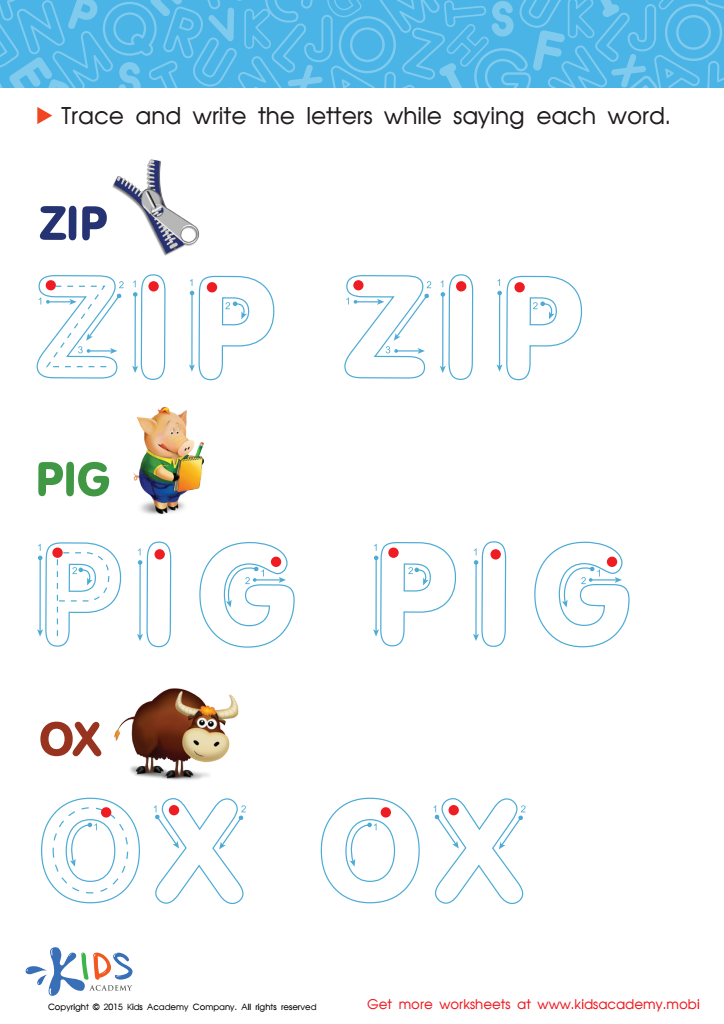

A Zip, a Pig and an Ox Spelling Worksheet
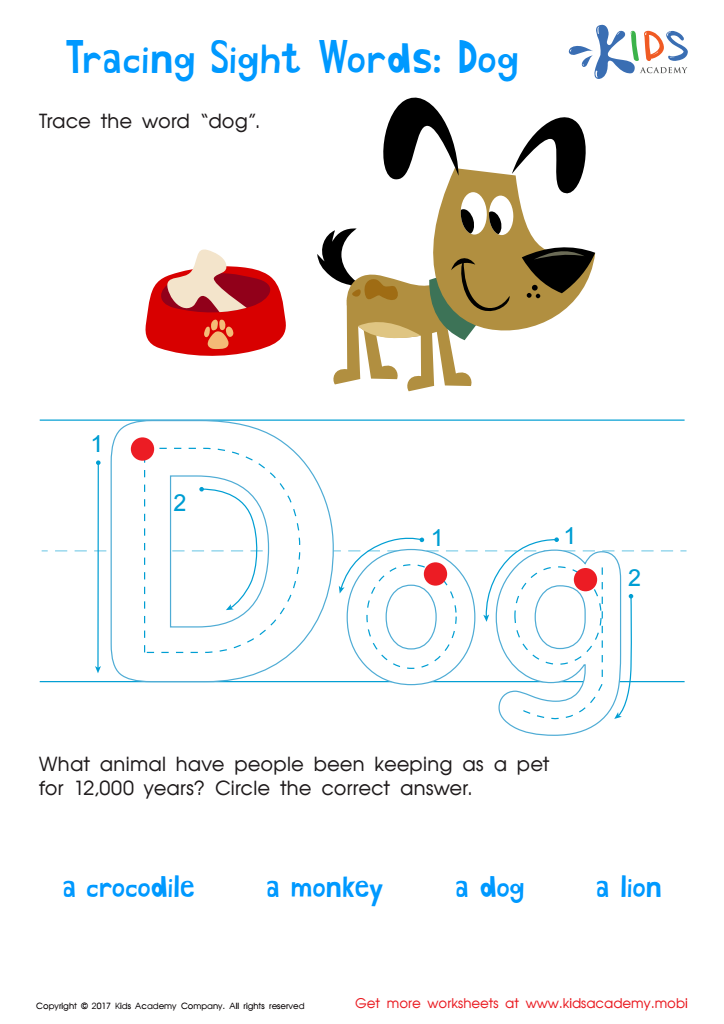

Dog Worksheet Sight Words Worksheet
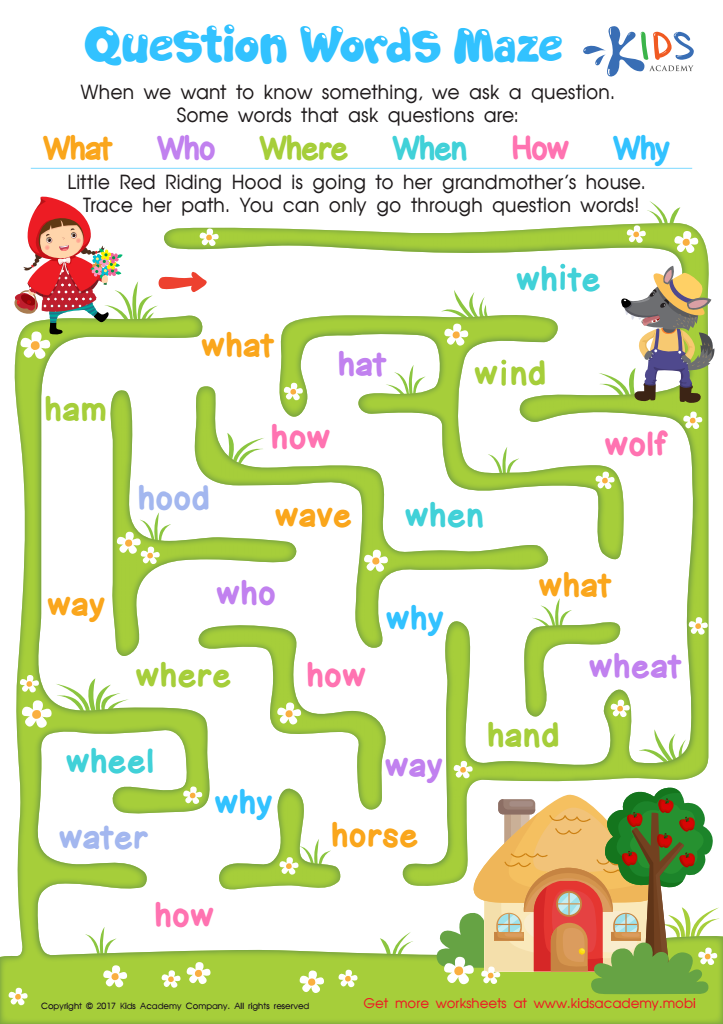

Question Words Maze Worksheet
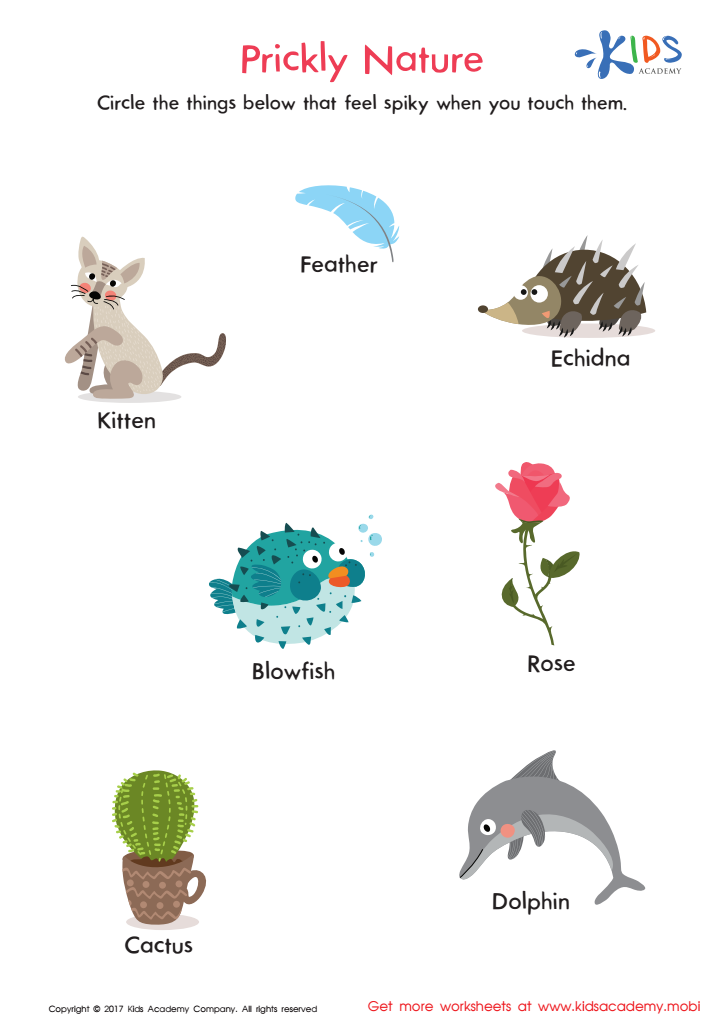

Prickly Nature Worksheet
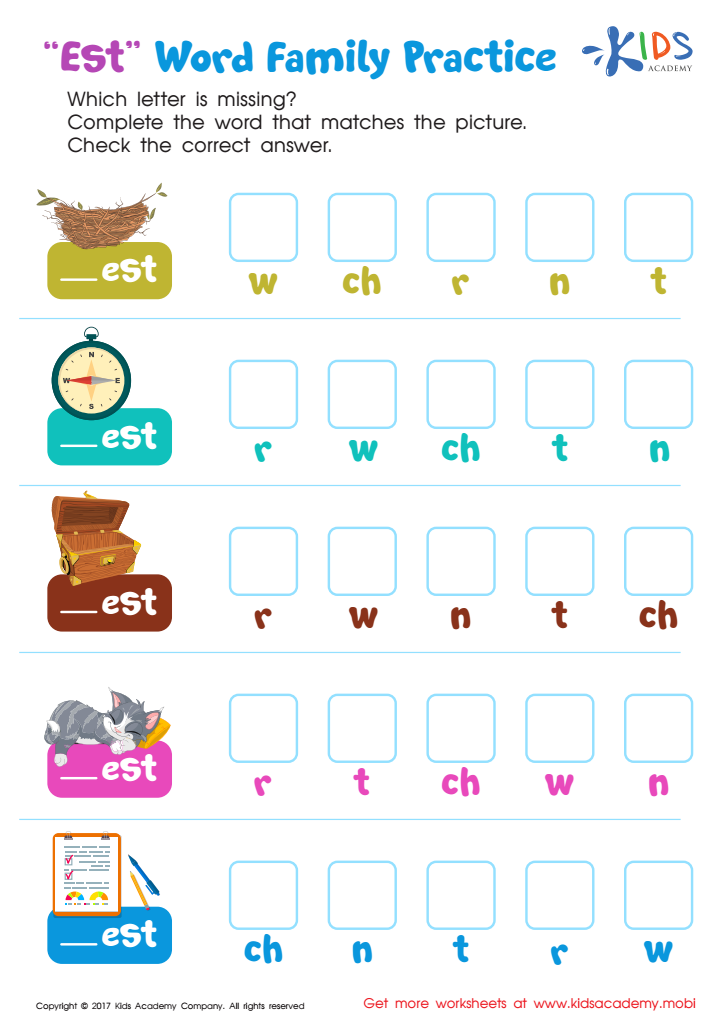

Words Family "est" Spelling Worksheet
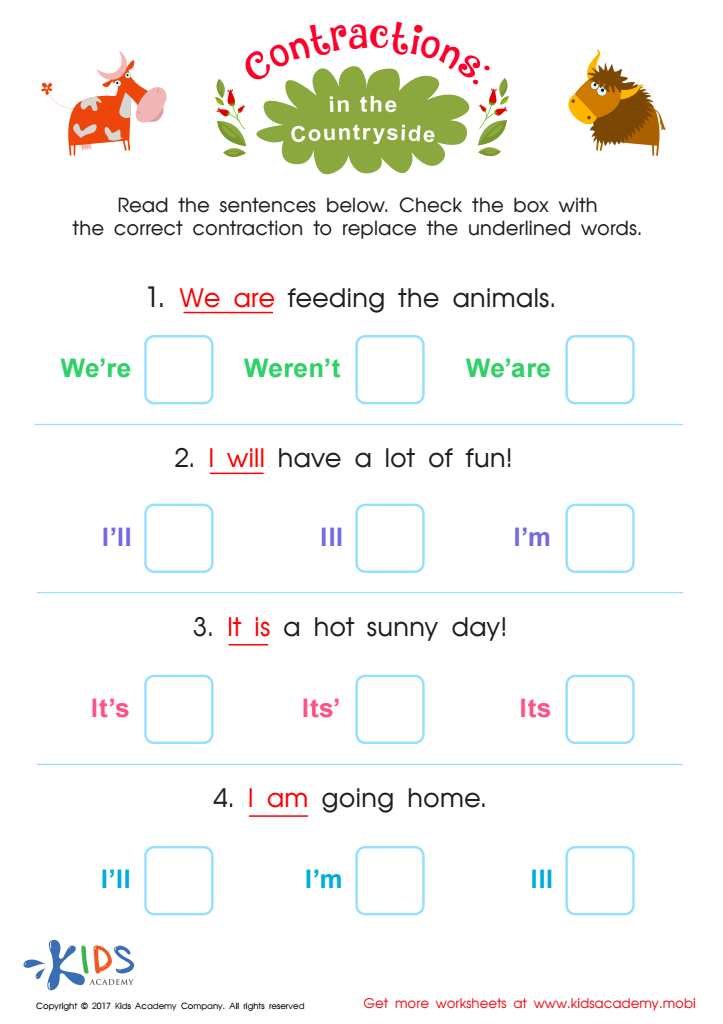

Contractions: In the Countryside Worksheet
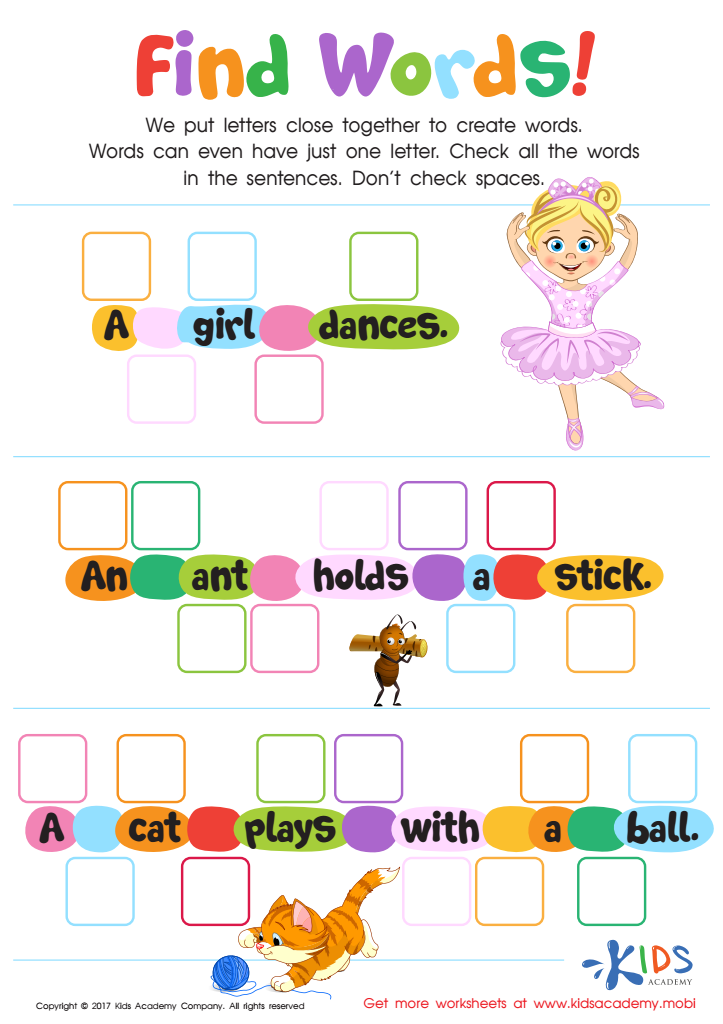

Find Words Worksheet
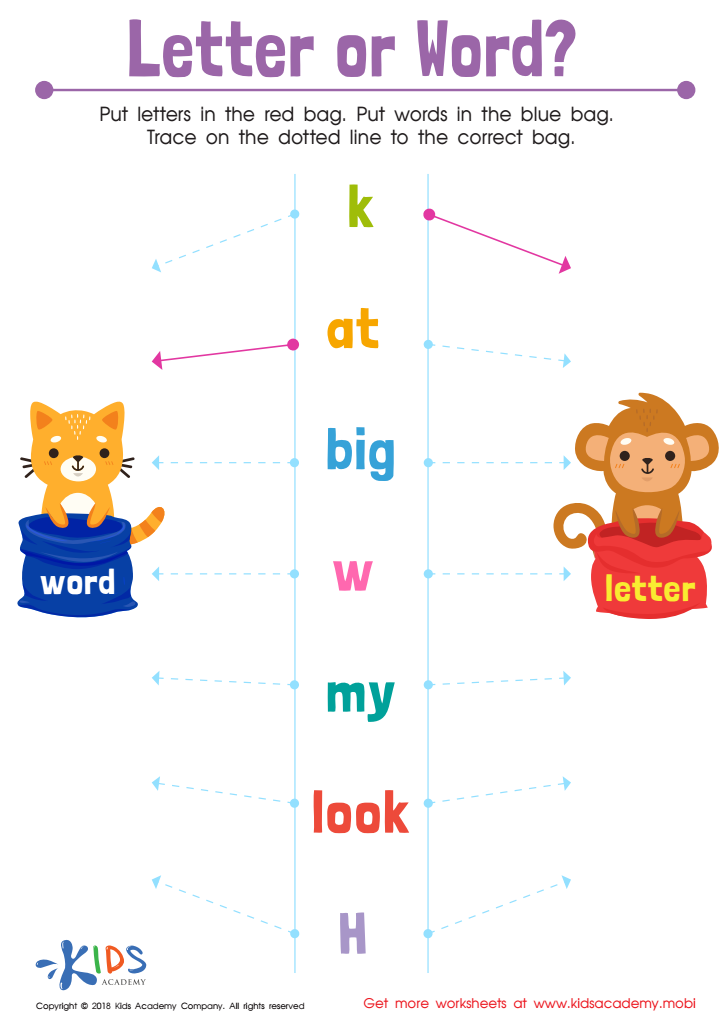

Letter or Word? Worksheet
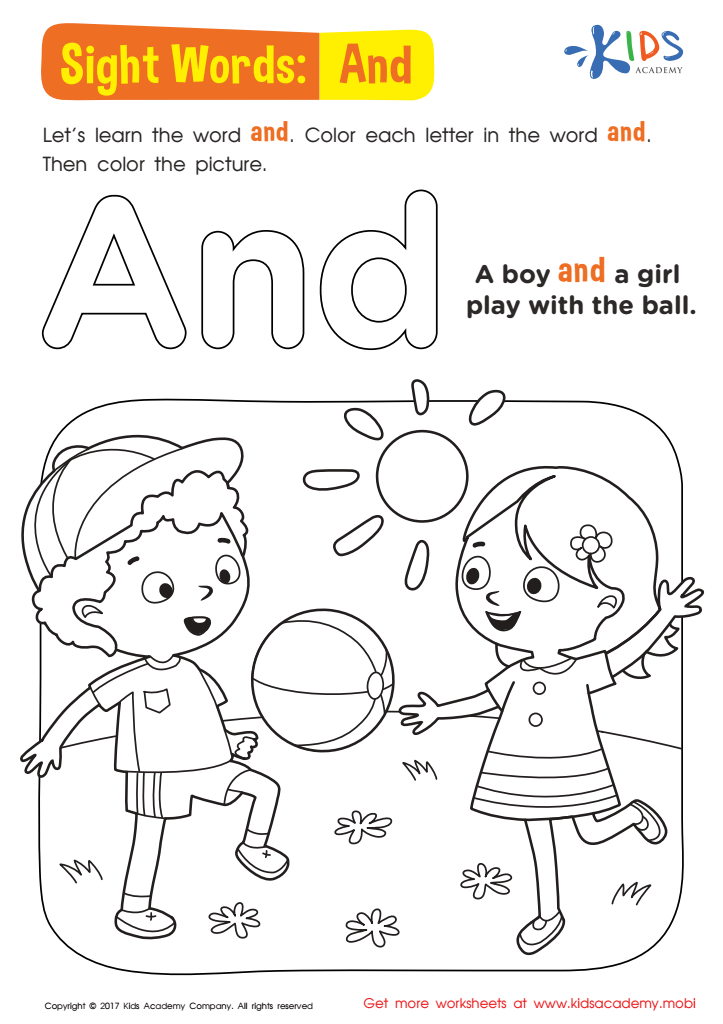

And Worksheet Sight Words Worksheet
Vocabulary building in children ages 4-6 is a crucial aspect of early education that parents and teachers should prioritize. At this developmental stage, children's brains are highly receptive, allowing them to absorb new words and concepts quickly. Expanding a child's vocabulary not only enhances their ability to communicate effectively but also fosters better comprehension and critical thinking skills.
By engaging in vocabulary-building activities, such as storytelling, reading, and writing, children become more adept at expressing their thoughts and emotions. This improved communication boosts their confidence and prepares them for future educational challenges. Additionally, a richer vocabulary lays the groundwork for reading proficiency, as children are able to decode and understand complex texts more easily.
Early vocabulary development has long-term academic benefits. Studies indicate that a strong vocabulary in early childhood is a significant predictor of academic success in later years. Conversely, children with limited vocabularies may struggle with learning and communication, potentially leading to frustrations and a lack of engagement in school.
Teachers and parents play a key role in facilitating vocabulary growth through interactive and meaningful language experiences. By creating a nurturing environment that encourages curiosity and linguistic exploration, adults can help children build a robust vocabulary foundation that will support lifelong learning and achievement.

 Assign to My Students
Assign to My Students









.jpg)












